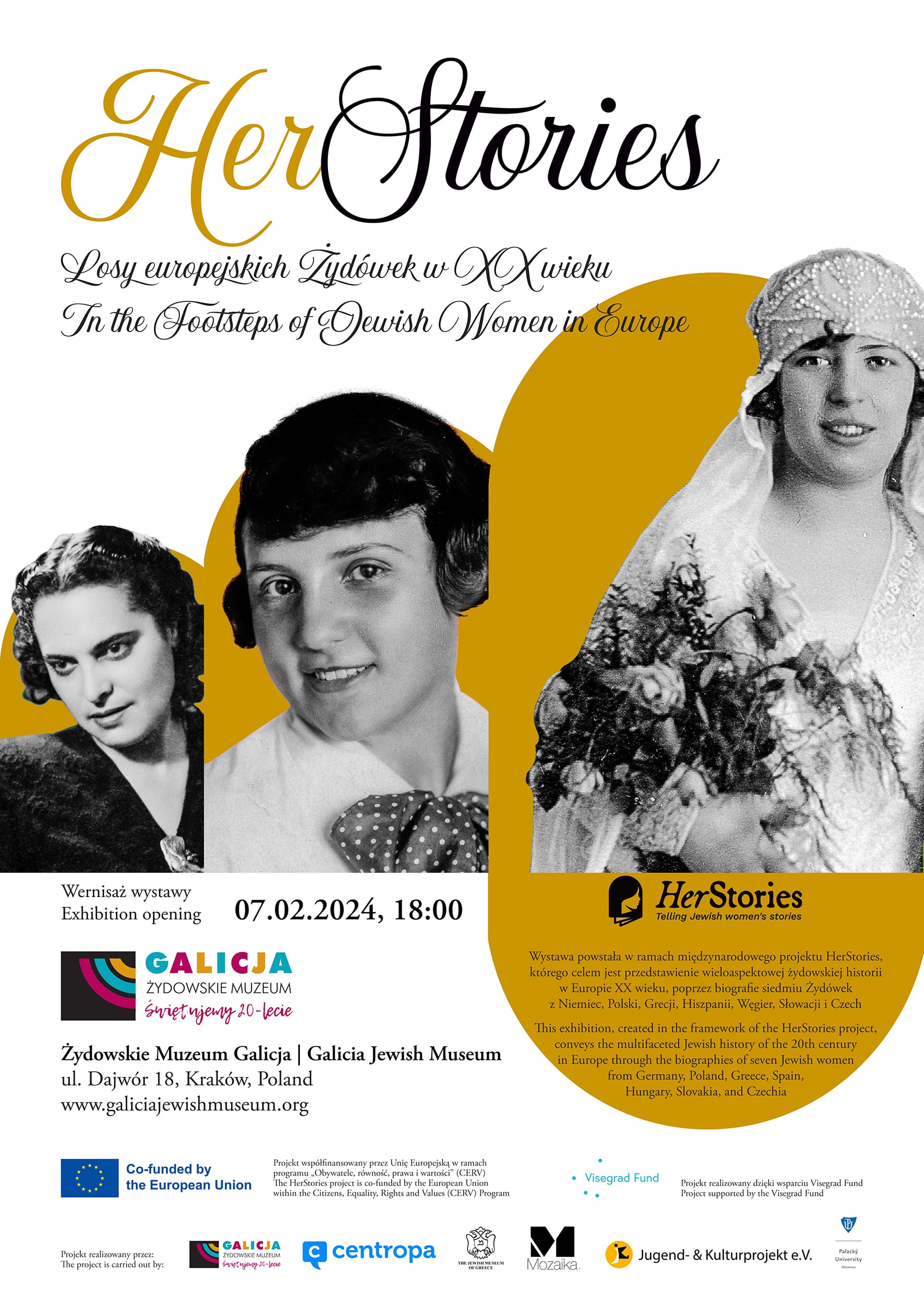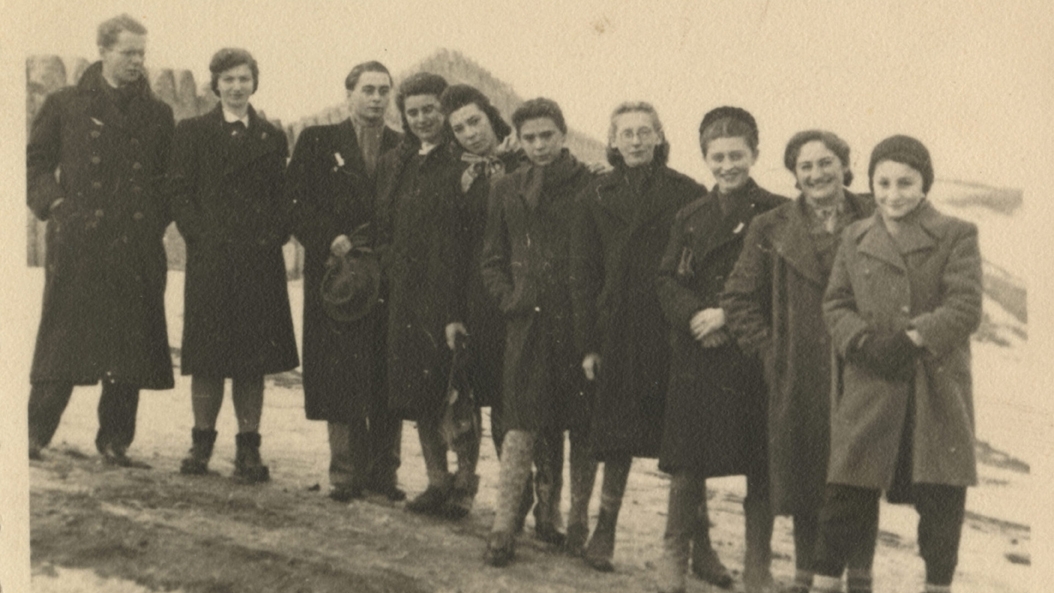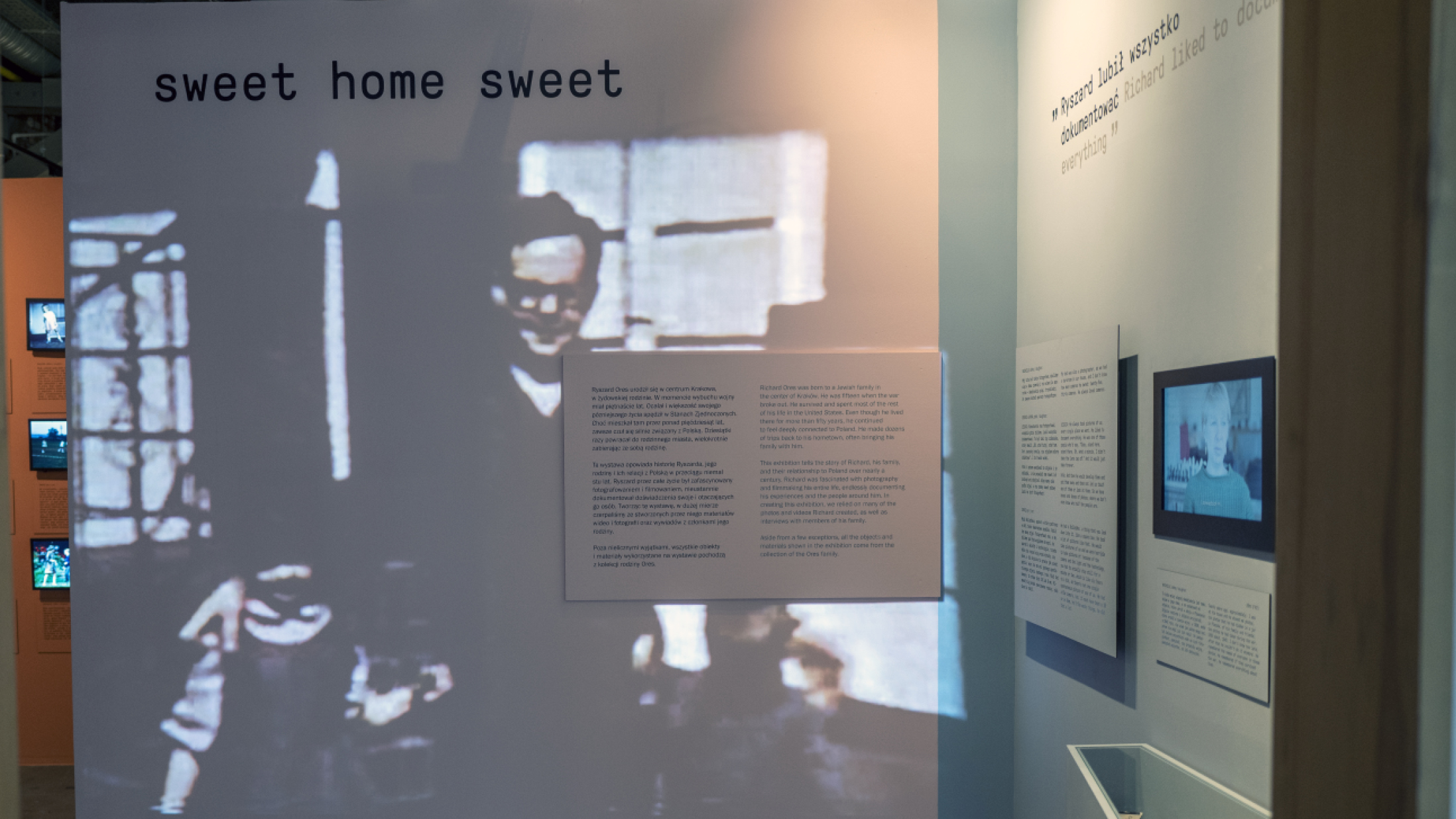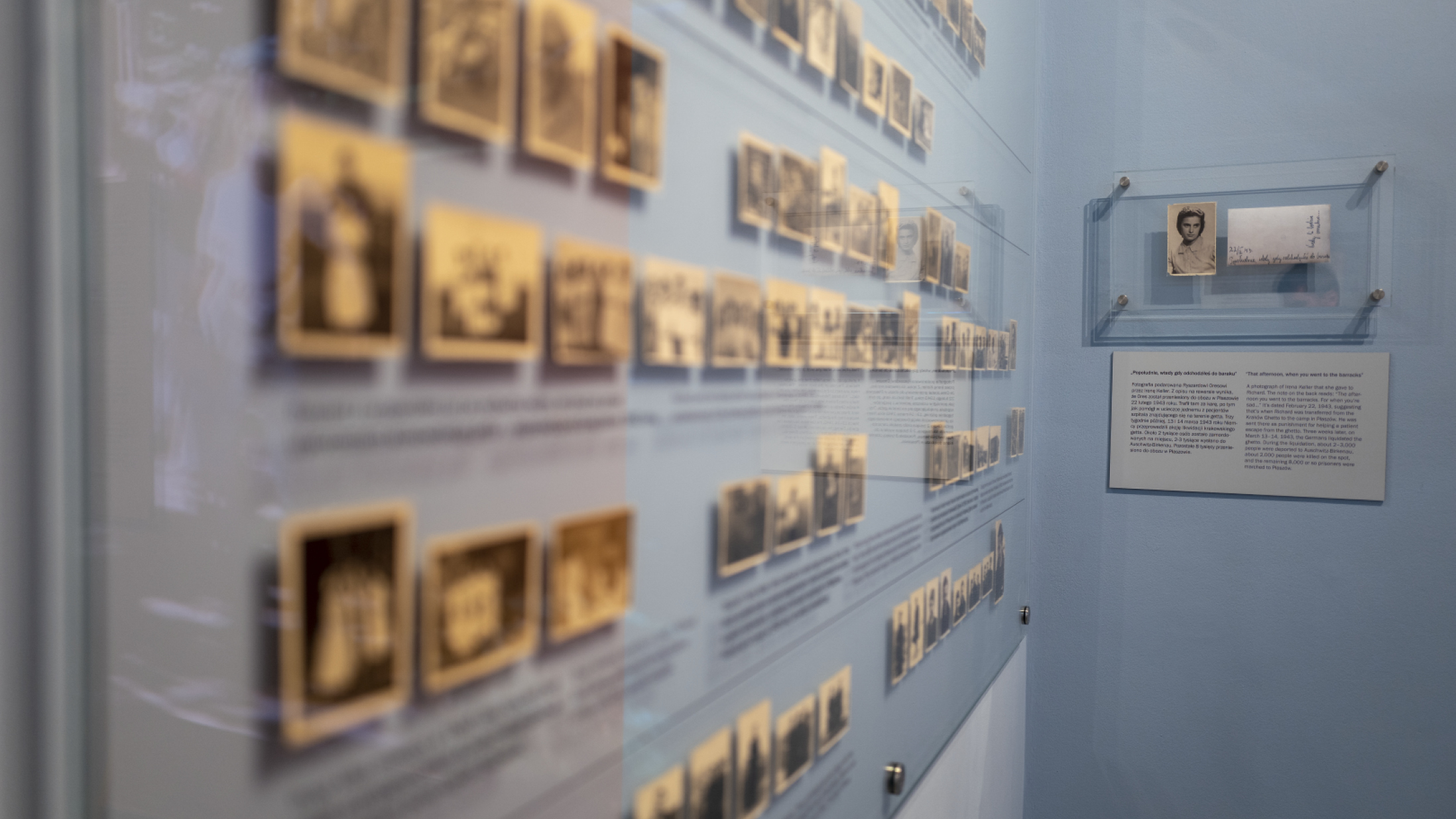 Project
Project
Exhibition HerStories. In the Footsteps of Jewish Women in Europe
This exhibition, created in the framework of the HerStories project, conveys the multifaceted Jewish history of the 20th century in Europe…

When my father was in the Kraków ghetto he was still taking photos, and those photos were buried in Płaszów and discovered after the war, he hid them in a pickle jar, a glass pickle jar in Płaszów… So I sat with him in his home with these photographs and I asked him who everyone was in the photo… and he told me. He remembered their names, he remembered if they survived the war, he remembered everything about them.
—Michelle Ores
“Sweet Home Sweet: A Story of Survival, Memory, and Returns”, is devoted to three generations of the Ores family and their relationship to Poland. The exhibition explores how Holocaust memory and narratives are transmitted through the generations, and how the children and grandchildren of survivors engage with contemporary Poland.

Oskar Ryszard Ores, known as Richard, was born in Kraków in 1923, into an assimilated Jewish family. His father held several jobs and his mother’s family owned a kosher sausage factory in Kraków. After the outbreak of World War II, Richard was forced to live in the Kraków ghetto with his mother and sister. In February 1943, he was marched to Płaszów, a nearby labor camp. In the final months of the war, he was a prisoner in three other concentration camps: Sachsenhausen, Flossenbürg, and finally Dachau, where he was liberated in April 1945. Richard was the only one in his immediate family who survived.
After the war, he recuperated in a US Army hospital and, a few years later, attended medical school in Bern, Switzerland, emigrating to New York in 1955. But he never forgot about Poland. Richard maintained a relationship with Poland after the war, returning frequently and staying in touch with friends in Kraków, among them heroes from the Kraków Ghetto like Julian Aleksandrowicz and Tadeusz Pankiewicz. In New York, he raised funds for hospital equipment for a clinic in Kraków and for the renovation and care of many of the city’s Jewish heritage sites, with the Ronald Lauder Foundation. For these actions, he was awarded the Knight’s Cross of the Order of Merit of the Republic of Poland, the Cross of the Home Army, and the Oświęcim Cross. He was also a consultant on the film “Schindler’s List” as the film depicted several of the places in which he survived the war.
Though Richard died in 2011, the second and third generations of his family have continued to be involved with Polish Jewish life. His daughter Michelle is engaged in the Kraków Jewish community and the preservation of Jewish life and heritage in Poland. One of her sons, Adam, has lived in Poland since 2017, where his work has focused on Jewish history and heritage. Many other members of the family have forged their own various relationships to Poland and the Holocaust.

Many Polish Holocaust survivors and their descendants understandably have a view of Poland that resembles the Poland of their parents’ or grandparents’ childhood and the horrors of the war. The Ores family, through its continued engagement with Poland, has a relationship with the country that, while very centered on the Holocaust and their family history, has a strong connection to Poland as a whole and to the renewal of Jewish Polish life today.
The exhibition offers a story of how one family formed their own vibrant connections to the country of their roots, while still living with the pain and trauma of the Holocaust, and is raising challenging questions about the relationship between ethnic Poles and Jewish survivors and their families, with the goal of understanding this relationship today.